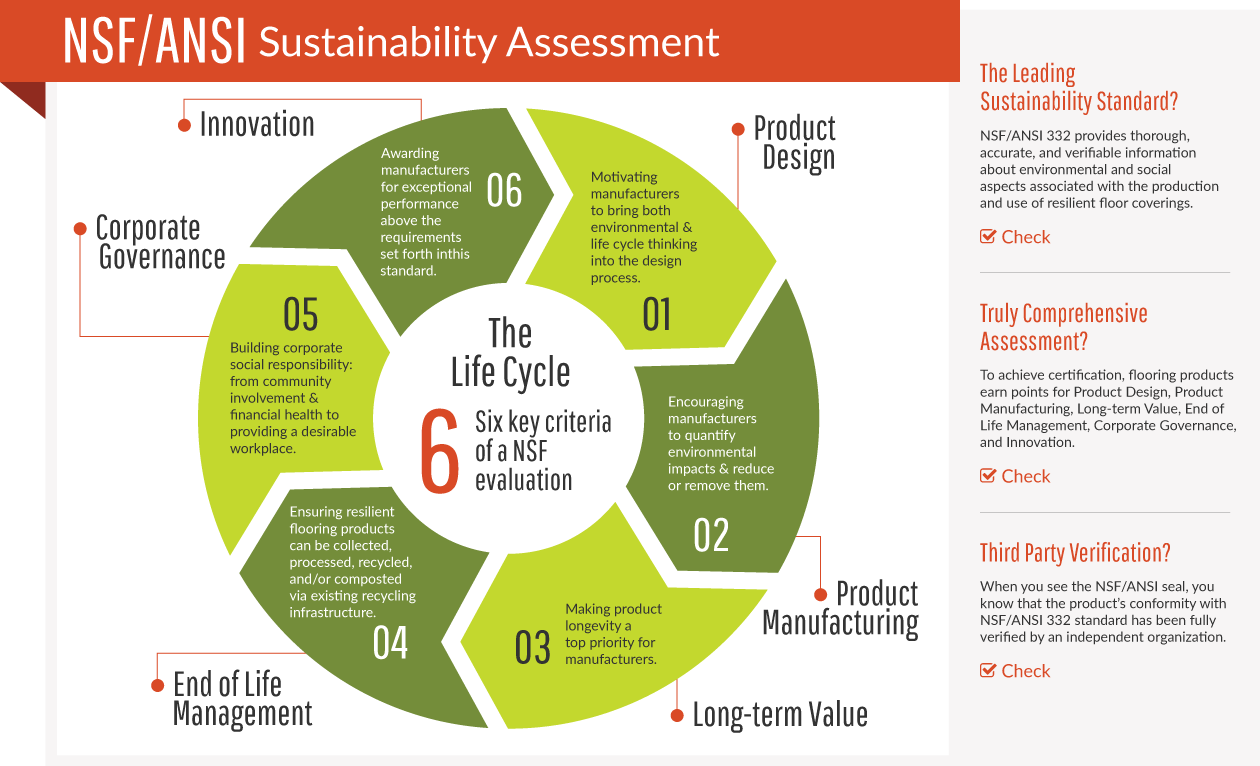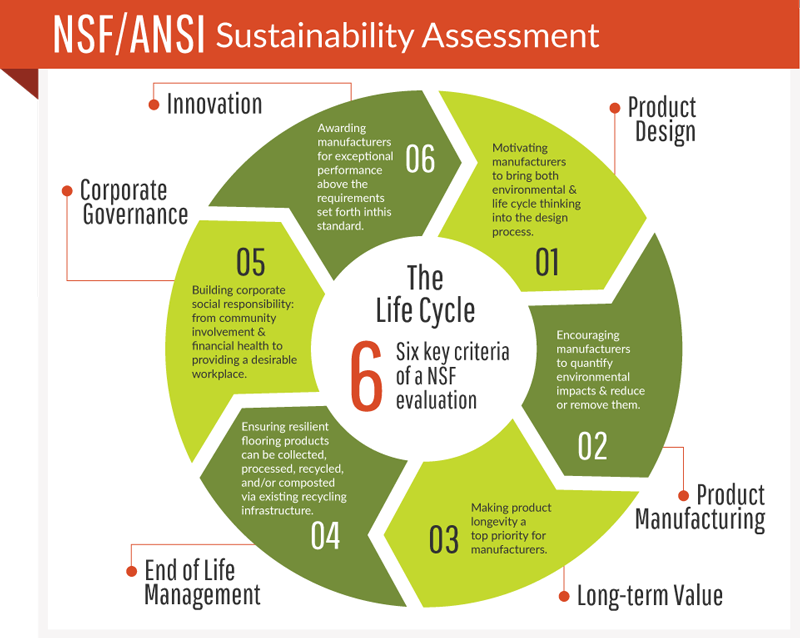About NSF International: NSF International, an independent, not-for-profit organization, certifies products and writes standards for food, water and consumer goods to minimize adverse health effects and protect the environment (www.nsf.org). Founded in 1944, NSF is committed to protecting human health and safety worldwide and operates in more than 120 countries. NSF is a World Health Organization Collaborating Centre for Food and Water Safety and Indoor Environment.


NSF International Draft Standard for Sustainable Resilient Flooring – NSF 332
In 2007, a draft standard for trial use that addresses sustainable resilient flooring products was introduced by RFCI in conjunction with NSF International, a not-for-profit, non-governmental organization who is a world leader in standards development, product certification, education, and risk-management for public health and safety.
The standard, draft American National Standard for Trial Use – NSF 332 – Sustainability Assessment Standard for Resilient Floor Coverings, is designed to help manufacturers of sustainable resilient flooring products demonstrate their commitment to the principles of sustainability. Â This sustainability standard for resilient flooring developed by NSF in accordance with the American National Standards Institute (ANSI) will provide useful information about the sustainability of resilient floors being considered for specification or purchase. Resilient floor coverings include vinyl tile, sheet vinyl, rubber, polymeric and linoleum products.
Sustainable products provide environmental, social and economic benefits to meet the needs of the present generation while protecting public health and the environment for future generations. Resilient manufacturers can now certify their products against this draft standard.
As more and more products with sustainable benefit claims are introduced into the market, end-users are interested in information to compare the performance of such products. Having this consensus standard will help support and inform the end-user decision-making process for the identification of products making sustainability claims.
RFCI members are vitally interested in the environmental impact of the flooring materials they manufacture and distribute. A sustainability standard for resilient flooring developed by NSF in accordance with the American National Standards Institute (ANSI) requirements will provide useful information about the sustainability of resilient floors being considered for specification or purchase. This standard can bring clarity to this important and complex evolving issue.”
The standard includes evaluation of the following sustainability criteria for resilient flooring products during the various phases of their life cycle:
- Informed product design
- Intelligent product manufacturing
- Long-term value
- Progressive corporate governance
- Innovation
NSF convened consensus body to further develop the draft standard with the goal of issuing a final American National Standard by the end of the three-year trial use period. The consensus body is a balanced committee of volunteer stakeholders representing environmental regulatory officials, manufacturers, suppliers, architects, designers, building product specifiers, facility managers and environmental and consumer groups.
